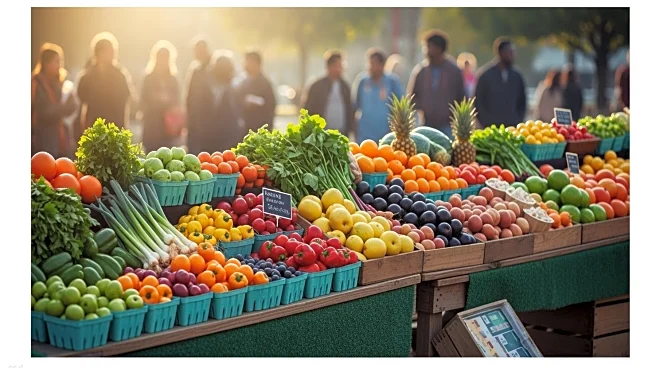What's Happening?
Kelowna, located in British Columbia, Canada, has been designated as the country's first UNESCO Creative City of Gastronomy. This recognition highlights Kelowna's significant contribution to gastronomy,
which is a cornerstone of its economy. The city attracts over 2 million visitors annually, generating $1.17 billion in tourism revenue. Kelowna is home to more than 500 restaurants, contributing $394 million each year. Local agriculture, occupying over half of the city's land, adds $3.6 billion to the economy and supports nearly 5,000 jobs. The designation was achieved through a collaborative effort involving the City of Kelowna, Westbank First Nation, Tourism Kelowna, and Okanagan College, with input from various industry professionals and community members.
Why It's Important?
The designation as a UNESCO Creative City of Gastronomy is expected to enhance Kelowna's global recognition, potentially inspiring new culinary festivals and development projects. This could lead to increased tourism and economic growth, benefiting local businesses and the community. The recognition also underscores the importance of gastronomy in Kelowna's economy, highlighting its role in attracting visitors and supporting local agriculture. As the first city in Canada to receive this designation, Kelowna sets a precedent for other cities to leverage their culinary heritage for economic and cultural development.
What's Next?
Kelowna anticipates that the UNESCO designation will lead to enhanced global recognition, inspiring new culinary festivals and development projects. This could attract more tourists and investors, further boosting the local economy. Stakeholders, including local businesses, tourism agencies, and community organizations, are likely to explore opportunities to capitalize on this recognition. The city may also engage in international collaborations with other UNESCO Creative Cities of Gastronomy to share best practices and promote cultural exchange.
Beyond the Headlines
The designation as a UNESCO Creative City of Gastronomy not only boosts tourism and economic growth but also highlights the cultural significance of gastronomy in Kelowna. It reflects the city's commitment to preserving and promoting its culinary heritage, fostering community collaboration, and supporting sustainable agricultural practices. This recognition may encourage other cities to explore similar opportunities, emphasizing the role of gastronomy in cultural and economic development.










